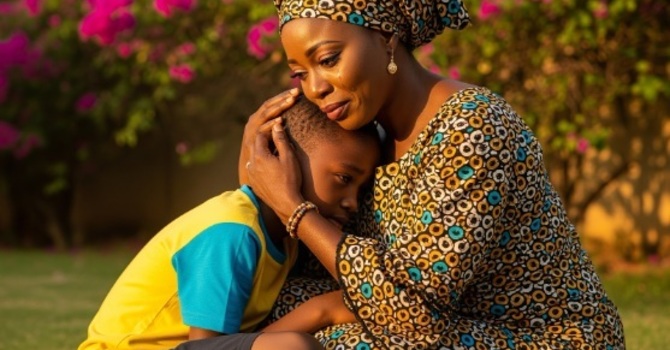
As a millennial with aging immigrant parents, you may find yourself in unfamiliar territory: wanting to talk about end-of-life care—but not knowing how. Maybe your Cantonese or Mandarin isn’t strong enough for sensitive topics. Maybe your parents’ English makes it hard for them to grasp medical or legal language. And maybe, even when the words are there, the conversation itself feels off-limits.
This tension is common in Chinese Canadian families, especially in the Greater Toronto Area and across Ontario, where multiple generations often live with different languages, cultural values, and comfort levels around discussing death. These conversations are tough—but they matter. In this blog, we’ll walk through culturally responsive ways to talk to your parents about end-of-life care, even when it feels impossible.
Why These Conversations Are So Hard
Talking about death or serious illness with Chinese immigrant parents isn’t just a linguistic challenge—it’s a cultural one. For many parents who grew up in traditional households, these topics may be considered unlucky, unnecessary, or even disrespectful to bring up. In families that value harmony and indirect communication, raising end-of-life planning can feel like a disruption.
For adult children, there may also be a fear of “saying the wrong thing,” especially if they’re not fully fluent in their parents’ native language. That can lead to avoidance, or defaulting to silence—just when clarity is needed most.
How Culture Shapes Communication
In many Chinese families, indirect speech is a sign of emotional sensitivity. Instead of saying “death,” people might refer to “going peacefully” or “the later stage of life.” Silence or subtle body language can carry more meaning than direct statements. This can be hard for younger generations raised in Canadian culture, where openness is often valued.
What feels respectful to one generation may feel evasive or unclear to another. That’s why bridging these communication styles is essential.
Communication Strategies That Work
Here are some culturally grounded and practical strategies for starting the conversation:
1. Start Indirectly—But Intentionally
Use softer phrasing like, “If something ever happened, what would be most important to you?” or “Have you thought about what kind of care you’d want if you were ever seriously ill?”
This respects your parents’ comfort level while still getting the conversation going. According to Chi et al. (2018), using indirect yet intentional language is a key part of culturally respectful communication in Chinese families.
2. Use Third-Party Stories as a Bridge
Talking about someone else’s experience—an aunt, a neighbour, or even a public figure—can lower the emotional stakes. For example, “I heard about someone whose kids didn’t know what they wanted when they got sick. It made me wonder—do we know what you’d want?”
3. Incorporate Familiar Phrases
Even if you’re not fluent, learning a few common euphemisms or respectful phrases in your parents’ native dialect can go a long way. It shows effort, care, and cultural alignment—even if your vocabulary is limited.
4. Bring in a Trusted Third Party
Some families benefit from involving a doctor, religious leader, or community elder who your parent trusts. These individuals can act as cultural and generational interpreters, creating more comfort and legitimacy around the conversation.
5. Pick the Right Moment
Choose a quiet, unrushed time—perhaps after a family gathering, a holiday, or a peaceful moment at home. Avoid bringing up end-of-life topics in times of conflict, stress, or illness unless it’s urgent. The goal is to approach with respect and steadiness.
What to Say (Even If You’re Nervous)
-
“I know this isn’t easy to talk about, but I want to make sure we honour your wishes.”
-
“If you were ever very sick, would you want to stay at home or go to a hospital?”
-
“I know we don’t usually talk about this, but I care too much not to ask.”
These questions aren’t about forcing decisions. They’re about building trust, starting a conversation, and creating space for your parent’s voice.
Supporting Yourself as the Middle Generation
If you’re acting as the translator—both emotionally and linguistically—it’s normal to feel overwhelmed. You're trying to balance two cultures, two communication styles, and a lot of emotional weight.
Give yourself permission to not get it perfect. Your intention, tone, and care matter more than your grammar. If you need support, consider connecting with culturally aware therapists or caregiver support groups in your area.
Closing Thoughts
Talking about end-of-life care with your parents may be one of the hardest conversations you’ll ever have—but it’s also one of the most meaningful. With patience, respect, and the right tools, you can begin bridging the gap between generations. Not to bring sadness—but to bring clarity, dignity, and peace of mind for everyone involved.
References
Canadian Medical Association Journal. (2015). Association between Chinese or South Asian ethnicity and end-of-life care in Ontario. CMAJ, 192(11), E266–E274.
Chi, H. L., Cataldo, J., Ho, E. Y., & Rehm, R. S. (2018). Please ask gently: Using culturally targeted communication strategies to initiate end-of-life care discussions with older Chinese Americans. The American Journal of Hospice & Palliative Care, 35(10), 1265–1272. https://doi.org/10.1177/1049909118760310
Monica Lau
Contact Me


